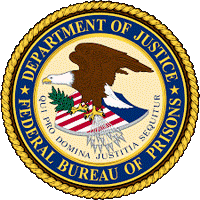By: Claudia Léonor 
In an increasingly technological society punctuated by health and human catastrophe, prohibitions on an individual’s use of the internet must be carefully considered.[1] While society’s best interests are best served by deterring recidivism and protecting minor children, there is something equally pertinent about the need to rehabilitate and reintegrate child sex offenders into society.[2] Federal supervised release, therefore, presents a unique conundrum within the legal regulatory regime: at what point does protecting the public eclipse individual rights?
Federal supervised release was created with the passage of the 1984 Sentencing Reform Act. It empowered judges to impose various sentences in pursuit of deterrence and rehabilitation of criminals.[3] Supervised release was one such sentence. The primary goal of supervised release, according to its legislative architects,[4] was to ease an individual’s transition and eventual re-integration into the community following the service of a prison term.[5] Judges exercise broad discretion and authority when defining the terms of supervised release: they evaluate the individual’s offense level, criminal background, and propensity for rehabilitation to determine their post-imprisonment conditions.[6]
Restrictions on internet usage have emerged as a rather ubiquitous condition of supervised release for child sex offenders.[7] Courts have justified internet bans, alleging that the bans deter recidivism and that the “egregious quality of child pornography validates the propriety of a total ban.”[8] But, as the years of the pandemic have elucidated, technology has become increasingly vital to survival.[9] In the face of a deteriorating public health crisis, internet-based tools and platforms forge an opportunity to put safety first.[10] The internet is the means through which people monitor virus proliferation, locate virus testing centers, and obtain remote employment.[11] Given the importance of the internet during the pandemic, restriction on internet access—irrespective of criminal status—should be carefully considered, if not avoided altogether.
[1] United States v. Eaglin, 913 F.3d 88, 91 (2d Cir. 2019).
[2] Emily Brant, Comment, Sentencing “Cybersex Offenders”: Individual Offenders Require Individualized Conditions When Courts Restrict Their Computer Use and Internet Access, 58 Cath. U. L. Rev. 779 n.190 (2009); see also Eaglin, 913 F.3d at 91 (“Although internet access through smart phones and other devices undeniably offers the potential for wrongdoing, to consign an individual virtually without access to the internet is to exile that individual from society.”).
[3] 18 U.S.C. § 3551(b) (Westlaw through Pub. L. No. 117-36 (excluding Pub. L. No. 116-283)); J.C. Oleson, Blowing Out All the Candles: A Few Thoughts on the Twenty-Fifth Birthday of the Sentencing Reform Act of 1984, 45 U. Rich. L. Rev. 693, 699-700 (2011).
[4] See generally 136 Cong. Rec. S 8997 (1990) (statement of Sen. Biden) (acknowledging that the “clear message” of the Sentencing Reform Act was to ensure that “when tough measures [we]re required to deal with crime . . . the [judiciary would] not hesitate to embrace them”).
[5] S. Rep. No. 98-225, at 124, reprinted in 1984 U.S.S.C.A.N. 3182, 3307.
[6] Jacob Hutt, Article, Offline: Challenging Internet and Social Media Bans for Individuals on Supervision for Sex Offenses, 43 N.Y.U. Rev. L. & Soc. Change 663, 666 (2019); Laura Tatelman, Give Me Internet or Give Me Death: Analyzing the Constitutionality of Internet Restrictions as a Condition of Supervised Release for Child Pornography Offenders, 20 Cardozo J. L. & Gender 431, 434 (2014); see also 18 U.S.C. § 3583(d) (requiring that “special” conditions of supervised release must be: (1) “reasonably related” to the nature and circumstances of the offense, the history and characteristics of the defendant, and the statutory goals of deterrence, protection of the public, and rehabilitation; and must (2) provide a “deprivation of liberty” that is no greater than necessary).
[7] See Stephen E. Vance, Fed. Judicial Ctr., Supervising Cybercrime Offenders Through Computer-Related Conditions: A Guide for Judges 1 (Oct. 2015), https://www.fjc.gov/sites/default/files/2015/Supervising%20Cybercrime%20Offenders.pdf (“Over the past fifteen years, federal district judges have increasingly imposed special conditions of supervised release and probation restricting computer and Internet use in an effort to protect the public from cybercrime, including child pornography offenses.”).
[8] See Jane Adele Regina, Comment, Access Denied: Imposing Statutory Penalties on Sex Offenders Who Violate Restricted Internet Access as a Condition of Probation, 4 Seton Hall Circuit Rev. 187, 196 (2007); see also United States v. Rearden, 349 F.3d 608, 620 (9th Cir. 2003).
[9] Nicola Lucchi, Internet Content Governance and Human Rights, 16 Vand. J. Ent. & Tech. L. 809, 813 (2014) (“Technological developments in communication have brought revolutionary opportunities and changes to how people obtain, proves, and exchange information . . . [With]in this framework, one of the contemporary and emerging challenges for the legal and regulatory regime is shaping a modern interpretation of freedom of thought and expression.”); see also Ryan Shandler, The pandemic shows we depend on the Internet. So is Internet access a human right?, Washington Post (July 13, 2020), https://www.washingtonpost.com/politics/2020/07/13/pandemic-shows-we-depend-internet-so-is-internet-access-human-right/ (noting that the pandemic accelerated “the process of social digitization”).
[10] Catherine J.K. Sandoval, et al., Legal Education During the COVID-19 Pandemic: Put Health, Safety and Equity First, 61 Santa Clara L. Rev. 367, 455 (2021).
[11] See Johanna Gunawan, et al., The COVID-19 Pandemic and The Technology Trust Gap, 51 Seton Hall L. Rev. 1505, 1506 & 1508 (2021); Laurie N. Stempler, Point and Click to Protect Public Health: Taking Charge of Information Dissemination Over The Internet During a Public Health Emergency, 73 Brook. L. Rev. 1591(2008); c.f. Yoachi Benkler, The Wealth of Networks: How Social Production Transforms Markets and Freedom 2 (2006) (affirming that technological advancements have innovated the ways in which “we make and exchange information, knowledge, and culture”).
